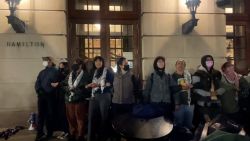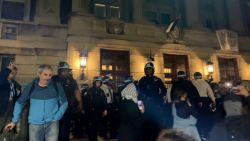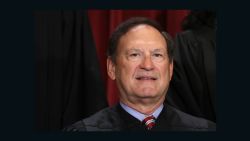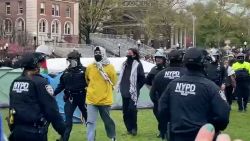Editor’s Note: In this new weekly column “Cross-exam,” Elie Honig, a former federal and state prosecutor and CNN legal analyst, gives his take on the latest legal news and answers questions from readers. Post your questions below. The views expressed in this commentary are his own. View more opinion articles on CNN. Watch Honig answer reader questions on “CNN Newsroom” at 5 p.m. ET Sundays.
The top issue on the minds of readers this week is the hotly anticipated, deeply mysterious Robert Mueller report: When will the special counsel share his findings, what will the report contain and who will see it?
Public attention has turned increasingly to the Mueller report in the wake of acting Attorney General Matthew Whitaker’s combative (and evasive) testimony to Congress following his declaration that Mueller is “close to being completed”; the likely imminent confirmation of attorney general nominee William Barr, who will receive the report from Mueller and decide where it goes next; and the brash proclamation from President Donald Trump’s former attorney John Dowd that “I don’t think there’ll be a report.”’

Dowd is wrong. There will be a Mueller report. The special counsel regulations require Mueller to “provide the Attorney General with a confidential report explaining the prosecution or declination decisions.” And Whitaker confirmed to Congress that “we have followed the special counsel’s regulation to a T.” The big question – which you asked, and I answer below – is what happens to the report after the attorney general gets it from Mueller.
As Joan Biskupic notes, history provides two divergent models for what the Mueller report could contain. In 1974, Watergate special prosecutor Leon Jaworski filed a concise “road map” setting forth factual findings to Congress without drawing legal conclusions. In 1998, independent counsel Kenneth Starr issued a novel-length report detailing alleged offenses arising from President Bill Clinton’s affair with Monica Lewinsky.
While issuance of the Mueller report will be a pivotal moment in the Trump presidency, it will not mark the end of Trump’s legal troubles. House Intelligence Committee Chairman Adam Schiff and others already have begun flexing their newfound subpoena power, and the Southern District of New York’s probes of the Trump Organization and the Trump inaugural committee continue to expand. Trump smartly beefed up his legal team in anticipation of the battles to come.
In other news, after protracted hearings, a federal judge determined that former Trump campaign chair Paul Manafort intentionally lied on three of five points to the FBI, Mueller and a grand jury. This means that Manafort is going to get hammered at sentencing; I’d expect the 69-year-old Manafort – who already has been convicted at trial, pleaded guilty to additional offenses and now poured gasoline on the fire by lying while trying to cooperate – to receive a sentence that will keep him behind bars for most or all of his life.
In the broader sense, it means the judge has sided with Mueller’s prosecutors, who argued that Manafort intentionally lied to cover up his dealings with Konstantin Kilimnik – including providing Kilimnik, who has been linked with the Russian intelligence agency, with internal polling data during the heat of the 2016 election – which goes “very much to the heart of what the special counsel is investigating.”
Now, your questions.
Shrisha: Is it possible that Mueller completes his report, but the general public never sees it because Trump and his attorney general do not permit it to be released?
The attorney general, after receiving the report, has broad discretion under the special counsel regulations about whether and how to provide the report to Congress and the public. Trump recently stated that the decision is “totally up to the attorney general” – then immediately contradicted himself by saying “I don’t know. It depends.” Any effort by Trump to suppress the report would come at his own political peril, given a new Washington Post-Schar School poll showing that 81% of Americans favor its public release.
Once he receives the Mueller report, Barr will have several options available. He could provide the entire report (perhaps with classified information redacted) to Congress and the public. Or he could lock the report in a safe and show it to nobody – though this seems unlikely given Barr’s testimony that he would “provide as much transparency as I can.”
The critical legal and political battles will happen in the middle ground. Will Trump and his attorneys seek to remove information from the report based on claims of executive privilege? Will Barr accept their objections? If not, will Trump challenge the report in court, and will Barr stand his ground? If the report goes only to Congress, will Schiff make good on his vow to do “everything possible” to make it available to the general public? Prepare for a multifront legal and political battle.
Susan: If Trump can’t be indicted while in office, can he be charged immediately after he leaves office? And what is the statute of limitations on all the crimes he may have committed?
While there is a healthy debate about whether a sitting president can and should be indicted – current Department of Justice policy counsels against indictment, scholars differ and no court has ruled on the issue – he certainly can be charged with a crime once he is out of office. But there are two big caveats. First, a president might be pardoned by his successor (as Richard Nixon was pardoned by Gerald Ford) or perhaps even by himself before he leaves office (though the courts have never addressed whether a president can legally pardon himself).
Second, any criminal charge must be brought within a time limit known as the statute of limitations. For most federal crimes, the statute of limitations is five years. So, if a president wins election to two terms covering eight years, any crime he committed before the first election or in his first three years in office might be precluded. But there is a counterargument that the statute of limitations should be put on hold while a president is in office, if he cannot be charged while in office.
Mark: Can an agreement to pardon an individual for the purpose of obstructing an investigation be a crime?
The courts have never ruled on this issue, one of many seemingly far-fetched law school hypotheticals that now may spring to life. Some – including Trump’s attorneys and Barr – argue that the president has broad constitutional powers, including the pardon power, and it cannot be a crime for the president to exercise those powers.
I disagree. To take an extreme example: If the president tweeted, “Pardons for sale, $25,000 each, cash only!” that would have to qualify as bribery. By that measure, if a president uses the pardon power to commit some other crime – for example, to prevent a witness from testifying – then that pardon could constitute obstruction of justice. A president certainly has broad powers, but that does not mean he is above the law.
David: If the election was proven tainted, would it be invalidated? And if the answer to that is “yes,” do all of Trump’s appointments also become invalidated – such as his Supreme Court picks and members of his administration?
Even if a president was impeached, removed from office and/or convicted of a crime, there is no way – legally or practically – to unwind the decisions he made during his term in office. Though Nixon wasn’t technically impeached, none of his Supreme Court or other judicial nominations were undone after his resignation. Even after Clinton was impeached (though he was not ultimately convicted by the Senate and removed from office), there was no attempt to remove his appointments.
I believe the law makes good sense here. A president makes dozens of consequential decisions every day. Where would we even start if we had to undo everything a tainted president did? Un-appoint all of his hundreds of appointments? Invalidate every law he signed? Take back the money allocated in his budgets? The government would fall into chaos.
Coke: How does Mueller’s mandate differ from Kenneth Starr’s?
Mueller’s mandate is to investigate “coordination between the Russian government” and the Trump campaign (and directly related matters). Starr also began with a defined mandate: to investigate financial dealings between Bill Clinton, Hillary Clinton and various banks and investment companies (“Whitewater”). Nearly four years into his investigation – take note, those who say Mueller is taking too long – Starr sought and received permission to expand his mandate to include perjury and other crimes arising from Clinton’s affair with Lewinsky.
Mueller and Starr served under different laws, and those differences will influence who gets to see Mueller’s report. The independent counsel statute (which is no longer effective) under which Starr served required him to provide a written report to Congress. Starr, accordingly, filed his memorably lascivious report directly with Congress and the public. The special counsel regulations, by contrast, require that Mueller send his findings confidentially to the attorney general, who in turn can decide to provide all, some or none of the report to Congress and the public. So, Mueller operates under a less transparent legal regime than Starr did.
Ed: Have you considered the “ostrich defense” we’re likely to encounter from Team Trump?
The “ostrich defense” refers to a defendant who “buries his head in the sand,” enabling him to claim he had no idea about criminality happening around him. Typically, you’ll see this defense from bosses – corporate CEOs, mafia bosses or political leaders who try to distance themselves from wrongdoing by their subordinates. The law says that if a person genuinely did not know what was happening – even if his closest associates were doing it – he cannot be held responsible.
But the law also recognizes an important doctrine called “willful blindness”: If a defendant intentionally closed his eyes to something that should have been obvious to him, then he has the requisite guilty knowledge just the same as if he had actual knowledge. So, the more people around him who get convicted of crimes, and the more pervasive the criminality within an organization, the harder it is for any boss to get away with the “I had no idea” defense.
Tim: We understand that in the American Media Inc./David Pecker immunity agreement (protecting them from prosecution by the Southern District of New York for making hush money payments to Karen McDougal, potentially violating campaign finance laws), they agreed not to commit any more crimes. In this type of agreement, would AMI have to be convicted of a crime to violate the agreement, or is it a crime if the prosecutors decide it is?
AMI first got in trouble in late 2018 for making hush money payments to McDougal, potentially violating campaign finance laws. However, the Southern District of New York gave AMI a deal: You cooperate, you stay out of further trouble, and we won’t prosecute you for campaign finance violations.
Simple enough – until last week, when AMI seemingly extorted Jeff Bezos. (AMI has said it is conducting an investigation into the matter.) If so, then AMI and its principals can be prosecuted both for (1) extorting Bezos and (2) campaign finance violations, because they have violated their non-prosecution agreement with the Southern District of New York by committing a new crime (the Bezos extortion). The Southern District of New York does not have to go to a jury and get a conviction to void the non-prosecution agreement; the agreement itself states that is up to the district whether AMI has committed a crime and violated the deal.
Bottom line: AMI seemingly had gotten itself a free pass, but now it’s in double trouble.
3 questions for the next week:
1) With Manafort now looking at a very long sentence, will Trump rescue him with a pardon?
2) Assuming Barr is confirmed as attorney general, will he limit or end Mueller’s obstruction of justice probe, which Barr previously derided as “fatally misconceived” and “asinine”?
3) Will Schiff’s decision to send dozens of interview transcripts to Mueller result in additional indictments, and, if so, who should be losing sleep?

























